MYSTERY JAM MONDAY PART 371
Welcome to the 371st edition of Phish.Net's Mystery Jam Monday, the third of April. The winner will receive an MP3 download code courtesy of our friends at LivePhish.com / Nugs.Net. To win, be the first person to identify the songs and dates of the two mystery clips. Each person gets one guess to start – if no one answers correctly in the first 24 hours, I'll post a hint. After the hint, everyone gets one more guess before Wednesday at 10 AM PT / 1 PM ET. Good luck!
Answer: Congrats to four-time MJM winner, @MikeThong! This week he quickly identified both instances of "Tweezer" -> "DEG" -> Tweezer" from 6/28/95 and 3/8/91 (even if the former is really just a protracted "DEG" tease) and in doing so has crossed the halfway mark to MJM Emeritus status. The Blog hopes everyone has a great holiday (whether you celebrate Easter, Passover, or 4/20 - or all three!), and for those hitting the Ghosts of the Forest tour-closing 4/20 celebration, keep an eye out for @wforwumbo and @ucpete rocking out! MJM372 drops Monday...
Note: Our apologies for dragging ass when it comes to updating the blog – we're playing catch up but will be better hence forth. Be sure to check out @ChalkDustTeacher's Hall of Fame send-off here!
TAKE THE BAIT - EPISODE 11. THE MEXICO SHOWS. ALL OF THEM.
[Take the Bait is spirited deliberation centered around the hyperbole of Phish’s music and fandom, passionately exuded via the written words of phish.net contributors @FunkyCFunkyDo and @n00b100. Opinions expressed herein do not necessarily reflect those of phish.net, The Mockingbird Foundation, or any fan… but we're pretty sure we’re right. Probably.]
One of few remaining readers: Mexico? ::Sideshow Bob annoyed grunt:: Didn’t those shows suck and, like, were undersold and no one went and the food sucked and one bandmember’s wife got into a fight and stuff and they vowed to never return but they had a contract or something? These TTB guys are really running out of ideas...
Funky: Uhh... woozle wazzle?
One of few remaining readers: Woozle wazzle?? That's what passes for journalism these days?
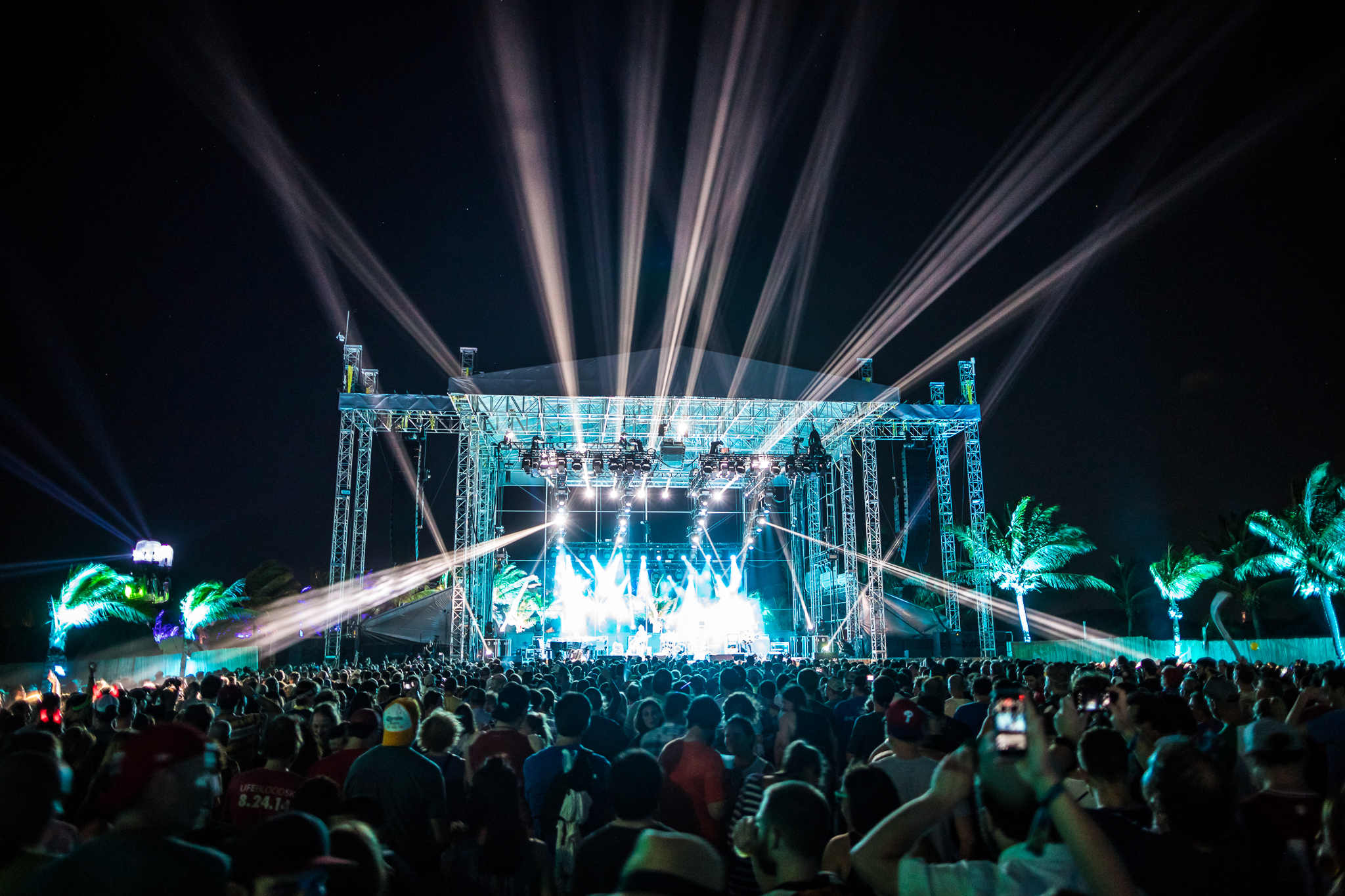
WEEKLY CATCH WITH OSIRIS #10: RECREATION HALL - STATE COLLEGE, PA - 04/08/1994

[Welcome To Weekly Catch With Osiris! A weekly series brought to you from the team at Osiris. Each Wednesday we're going to bring you a historic Phish show from that week with some commentary. Our goal is to go beyond official releases and well-known shows to bring you some of the overlooked gems throughout Phish history. If you like what you find, we'd encourage you to check out the assortment of podcasts at the Osiris! This week's catch comes from Brian Brinkman of Beyond The Pond.]
Listen: Recreation Hall, State College, PA - 04/08/1994
It's April which means we are in full swing with early-90's Spring Tours! For our 10th edition of the Weekly Catch Series, we wanted to offer a dose of 1994 perfection to the round. I said it a few posts prior about Spring 1993, but I think it's fair to ask here once again: Is it possible that Spring/Summer 1994 is THE most fun Phish Tour of all time? Seriously, Phish was so good on this tour that a show like this with very high-highs and big song selections can just be left under the radar with little-to-no attention for a quarter century. It's a true testamant to how strong their best shows are, but also how consistently good Phish has been that they can play a show that unquestionably left people buzzing and has a few of their biggest fans still listening all these years later, but rarely is mentioned by the larger community when compiling a list of must-hear Phish shows.
MYSTERY JAM MONDAY PART 370
Welcome to the 370th edition of Phish.Net's Mystery Jam Monday, the second* and easiest of April! The winner will receive an MP3 download code courtesy of our friends at LivePhish.com / Nugs.Net. To win, be the first person to identify the song and date of the mystery clip. Each person gets one guess to start – if no one answers correctly in the first 24 hours, I'll post a hint. After the hint, everyone gets one more guess before Wednesday at 10 AM PT / 1 PM ET. Good luck!
*Note: Given that last week's MJM had its own April Fools' twist, this week's puzzle will be run like a standard first-of-the-month puzzle; only folks who have never won an MJM are allowed to answer before the hint. If you have never won an MJM, please answer as a blog comment below. If you have previously won an MJM, but you'd like to submit a guess before the hint, you may do so by PMing me; once the hint has been posted, everyone should answer on the blog. If that's confusing to you, check out the handy decision tree that @ucpete threw together to help guide you. If you're not sure if you've won before, check in the MJM Results spreadsheet linked below.
Answer: Congratulations to first-time MJM winner @axillapt5000, who made quick work of the actual easiest MJM of the month by quickly identiyfing the 8/6/96 "Tweezer." Stay tuned next week when Dr. Wumbo drops another gem or two that ass.
GET IN: GHOSTS OF THE FOREST, NIGHT ONE
[Recap courtesy of user @Franklin, thank you Jeremy! -Ed.]
In the twenty months since the Baker’s Dozen, I’ve realized that what I appreciate most about Trey is that his leadership is grounded in loyalty more than ego. As much as I love, say, Bruce Springsteen, his singular vision is what drives the E Street Band. Trey isn’t like that – his loyalty to Phish and to the audience is what drives his music. This time, even when we’re under the banner of Trey Anastasio’s Ghosts of the Forest and it is clearly a singular vision running the show, loyalty is still at the center of the evening. His loyalty to his friend Chris, as he detailed in heart-wrenching detail in a recent Rolling Stone interview, is what led to Ghosts of the Forest. And our loyalty to Trey is what led us to drive all the way up to Maine to see a band that, until 8:15pm last night, didn’t yet exist.
.jpg)
TAKE THE BAIT - EPISODE 10. THE FORGOTTEN FESTIVALS: FESTIVAL 8
[Take the Bait is spirited deliberation centered around the hyperbole of Phish’s music and fandom, passionately exuded via the written words of phish.net contributors @FunkyCFunkyDo and @n00b100. Opinions expressed herein do not necessarily reflect those of phish.net, The Mockingbird Foundation, or any fan… but we're pretty sure we’re right. Probably.]
Funky: Well, n00b, Gordo tour is done. March Madness has left most of us in ruin. And the phish.net forum is cannibalizing itself, wondering just when those West Coast dates are going to be announced ::refreshes forum… clenches fists:: Apparently not today, but some dude thinks tomorrow. I’m rolling with that guy. With Phish, like you, I, that guy, and Smooth Jimmy Apollo all know, when you're right 52% of the time, you're wrong 48% of the time!
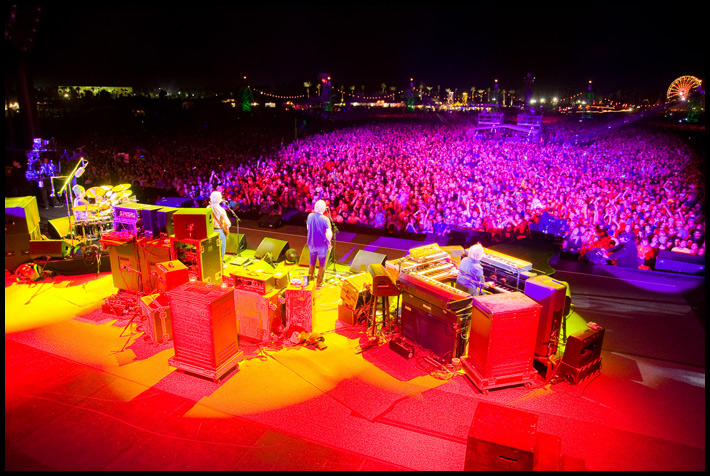
WEEKLY CATCH WITH OSIRIS #9: HUNT'S - BURLINGTON, VT - 04/01/1986

[Welcome To Weekly Catch With Osiris! A weekly series brought to you from the team at Osiris. Each Wednesday we're going to bring you a historic Phish show from that week with some commentary. Our goal is to go beyond official releases and well-known shows to bring you some of the overlooked gems throughout Phish history. If you like what you find, we'd encourage you to check out the assortment of podcasts at the Osiris! This week's catch comes from Brian Brinkman of Beyond The Pond.]
Listen: Hunt's, Burlington, VT - 04/01/1986
Between March 1985 and November 1987, Phish played nearly 20 shows at Hunt's in Burlington. We all know of Nectar's and the famed residencies the band played there, as well as the gravy fries. For whatever reason, Hunt's tends to fall below the radar for most fans when discussing Phish's formative years. And yet, it was in this venue - which has seen performances by BB King, Roy Orbison, Gregg Allman, Pat Methany and Taj Mahal - where the band debuted classics such as "Harry Hood," "You Enjoy Myself," "Icculus," "AC/DC Bag," and "I Didn't Know."
MYSTERY JAM MONDAY PART 369
Welcome to the 369th edition of Phish.Net's Mystery Jam Monday, the first of April! The winner will receive an MP3 download code courtesy of our friends at LivePhish.com / Nugs.Net. To win, be the first person to identify the song and date of the mystery clip. Each person gets one guess to start – if no one answers correctly in the first 24 hours, I'll post a hint. After the hint, everyone gets one more guess before Wednesday at 10 AM PT / 1 PM ET. Good luck!
Answer: April Fools from @ucpete and myself! We spent a bit of time figuring out the best way to wield this rarity of a coincidental MJM and April Fool's Day. @Mshow96 aka the Captain of all things Kosmic made utter mincemeat of our crafty little trick in mere hours, correctly identifying the crowd applause from the pause from 6/18/94's Divided Sky. He receives his second download code off a one-clipper; shall his streak continue, or will he learn to best the multibeastclip MJM?
WEEKLY CATCH WITH OSIRIS #8: WARFIELD THEATRE - SAN FRANCISCO, CA - 03/26/1993

[Welcome To Weekly Catch With Osiris! A weekly series brought to you from the team at Osiris. Each Wednesday we're going to bring you a historic Phish show from that week with some commentary. Our goal is to go beyond official releases and well-known shows to bring you some of the overlooked gems throughout Phish history. If you like what you find, we'd encourage you to check out the assortment of podcasts at the Osiris! This week's catch comes from Michael Shield of Across The Margin.]
Listen: Warfield Theatre, San Francisco, CA, 03/26/1993
Welcome to another installment of the Weekly Catch with Osiris where, yet again, a Phish show from the Spring of 1993 is highlighted. Truth be told we — and any Phish fan who loves the playful, balls-to-the-wall (still a saying?) nature of Phish in ‘93 — could talk about the grandeur and antics of the band during this period of time for days on end. But, personally, what I love specifically and most intensely about this era are the “Split Open and Melt” versions which were played. Each version is unique in its own right, driven, often sinister, and pointed and concise (relative to Phish of course!), in a way that toys with momentum and the beat which is at the heart of a song.
KASVOT VAXT WAS A 4K FIRST
A great article in Streaming Media a few days ago lays out how Phish delivered the four shows of the 2018 Halloween run in 4K to phans at home - the first time any live concert had streamed in 4K!
MYSTERY JAM MONDAY PART 368
Welcome to the 368th edition of Phish.Net's Mystery Jam Monday, the fourth and hardest of March. The winner will receive an MP3 download code courtesy of our friends at LivePhish.com / Nugs.Net. To win, be the first person to identify the songs and dates of the three mystery clips. Each person gets one guess to start – if no one answers correctly in the first 24 hours, I'll post a hint. After the hint, everyone gets one more guess before Wednesday at 10 AM PT / 1 PM ET. Good luck!
Hint: Phish has covered a certain color-themed band quite a bit, though I wouldn’t necessarily say it’s any colour you like...
Answer: And then there were... 22? The Blog's favorite math professor, @ChalkDustTeacher, has done it again and catapulted himself downtown straight into the MJM Hall of Fame with his seventh win. This week, he needed the hint (thanks to @Dog_Faced_Boy for handling that for us!) but saw right through it to nail down the three jams played at shows feature Pink Floyd covers: 6/17/11 "Rock and Roll," 5/1/93 "Weekapaug Groove" (listen to the whole thing - it's psych ward level insanity), and the 9/12/00 "Down with Disease." This week's MJM should serve as a reminder that outside of the 11/2/98 Dark Side of the Moon cover, Phish has paid homage to their forefathers more than a few dozen times (see: many of the "HYHU" > "Bike" > "HYHU" Fishman features, the aforementioned tournament final featuring the "Mike's" -> "Breathe" from 10/25/95, or any of the "Great Gig in the Sky" renditions from '93-'94).
@ChalkDustTeacher burst onto the scene during the MMJM tournament a couple years back – he was a virtual nobody, and hadn't yet won a single MJM. We were dubious of the performance by a rookie, wondering what sort of fingerprinting algorithms he may have written to buoy his just-short performance. But he quickly put those thoughts to rest by winning his first and second MJMs back-to-back a few weeks later, finishing with three wins in the four months following his Wookiee of the Year performance. But then he disappeared for all of 2018, and we thought he was the latest to burn out and not fade away. Some heard he was working on Hilbert's Problems, others said he may have been searching for stable solutions to the Navier-Stokes equation. It's unclear if there's a rational answer to exactly what he was up to, but what we know for sure is that 2019 brought him out of the Great White Woodwork to win four of the next ten (!) MJMs to finally put the theories to bed. Congrats @ChalkDustTeacher! One question as you hop aboard the cruise ship towards the vault: do you know what MJM Emeriti smell like? Depends...
TREY SITS IN WITH MIKE GORDON
It's not every day that Trey sits in with a band in a small club. But last night, Trey sat in for more than half of Mike Gordon's show at The Sinclair in Cambridge, MA. It was the first time in years--since 4/4/14--that Mike got to play with both Scott Murawski and Trey, the two guitarists he's gigged with the most over the last 30 years. What was obviously a treat for Mike was also a treat for everyone present last night.
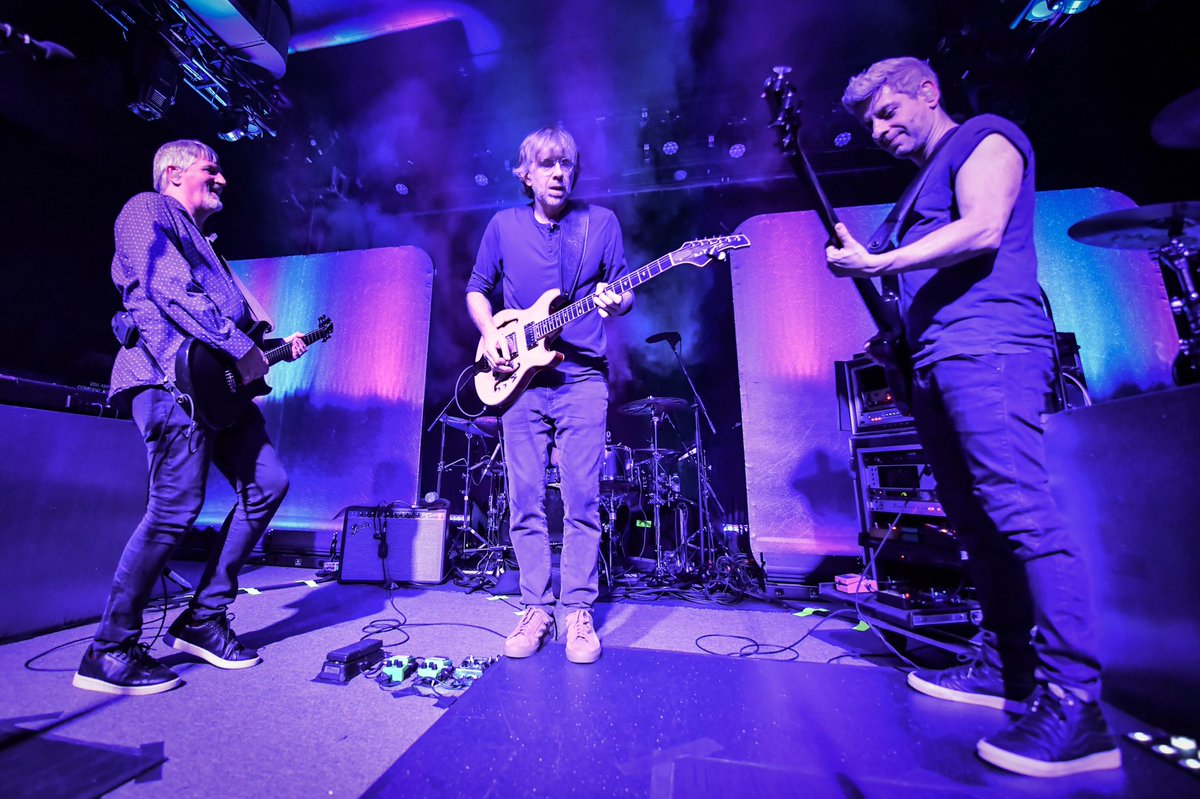
WEEKLY CATCH WITH OSIRIS #7 - PHILADELPHIA, PA - 3/21/92

[Welcome To Weekly Catch With Osiris, a weekly piece brought to you from the team at Osiris. Each Wednesday we're going to bring you a Phish show from that week with some commentary. Our goal is to go beyond official releases and well-known shows to bring you some of the overlooked gems throughout Phish history. If you like what you find, we'd encourage you to check out the assortment of podcasts at the Osiris! This week's catch comes from RJ Bee of Helping Friendly Podcast.]]
I'm going to keep it short and sweet this time. Sometimes, we look at "the show," in this case, 3.20.92 from Binghamton. But sometimes, it's fun to look at the show before "the show," or the show after "the show." As fans, we sometimes don't do this, because we've been trained over time to expect the before/after "the show" to be lacking, or at least not as good. And with 1,660 Phish shows (according to ZZYZX's amazing IHOZ), you can't listen to everything. Or can you? Anyway, let's check out "the show after the show," 3.21.92 from Philadelphia. Also, this second set was released on video by a fan in 2017, as highlighted by JamBase.
MYSTERY JAM MONDAY PART 367
Welcome to the 367th edition of Phish.Net's Mystery Jam Monday, the third of March. This week's puzzle comes to you courtesy of MJM Hall of Famer @jimsleftear – special shout out to the Emeritus crew for the endless stream of jam recommendations! The winner will receive an MP3 download code courtesy of our friends at LivePhish.com / Nugs.Net. To win, be the first person to identify the songs and dates of the two mystery clips. Each person gets one guess to start – if no one answers correctly in the first 24 hours, I'll post a hint. After the hint, everyone gets one more guess before Wednesday at 10 AM PT / 1 PM ET. Good luck!
Hint:
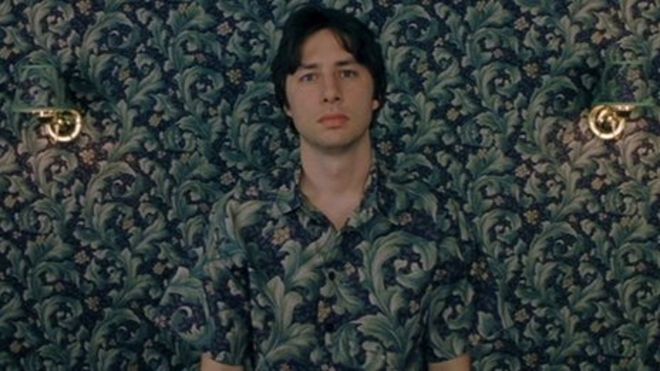
Answer: Coming in hot on the hint, @HarborSeal picks up his sixth win! He noticed the hint as a photo from the film Garden State - the home of fellow MJM host @wforwumbo - and successfully picked out the 7/25/93 Tweezer and 6/23/95 Runaway Jim. And now the clock is on for when (and not if!) @HarborSeal picks up a seventh win and joins the promise land of the emeriti! Will it happen next week? Stay tuned to find out!
FACEPLANT INTO OREGON STATE: PHISH STUDIES CONFERENCE
Oregon State University will host the first Phish Studies academic conference in Corvallis, Oregon on May 17-19, 2019. The conference will showcase research about Phish, its fans, and culture. A wide variety of disciplinary approaches will be represented, featuring scholars from across the country.
Registration is open and a tentative list of presentations is available now. Stay tuned for announcements about schedule details and special guests.
There are a number of ways that you can support the conference and growing field of Phish Studies:
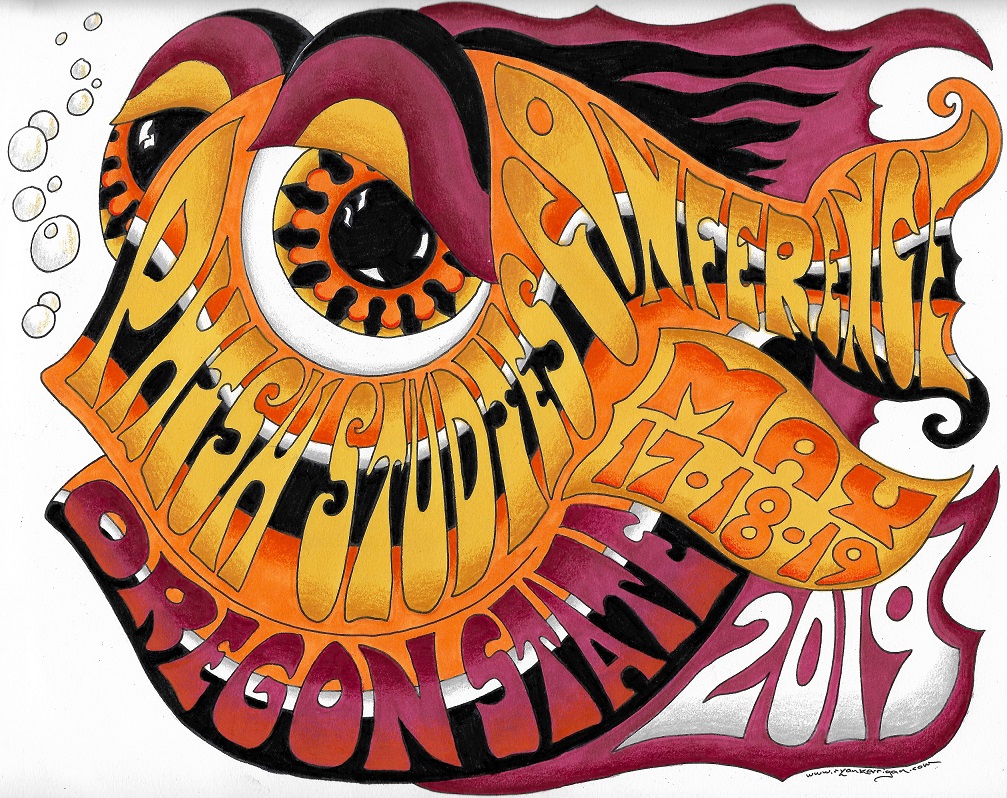



 The Mockingbird Foundation
The Mockingbird Foundation